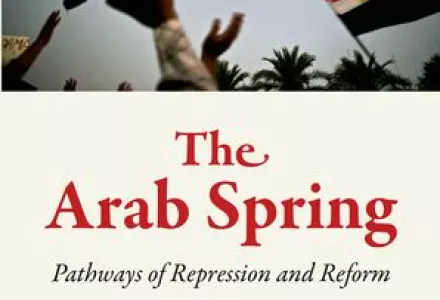A book talk with Tarek Masoud, Sultan of Oman Associate Professor of International Relations, Jason Brownlee, Associate Professor of Government and Middle Eastern Studies, University of Texas-Austin, and Andrew Reynolds, Associate Professor of Government, University of North Carolina-Chapel Hill on their recent book The Arab Spring: Pathways of Repression and Reform.
Moderated by Stephen M. Walt, Robert and Renee Belfer Professor of International Affairs, Harvard Kennedy School.
Several years after the Arab Spring began, democracy remains elusive in the Middle East. The Arab Spring that resides in the popular imagination is one in which a wave of mass mobilization swept the broader Middle East, toppled dictators, and cleared the way for democracy. The reality is that few Arab countries have experienced anything of the sort. While Tunisia made progress towards some type of constitutionally entrenched participatory rule, the other countries that overthrew their rulers Egypt, Yemen, and Libya remain mired in authoritarianism and instability. Elsewhere in the Arab world uprisings were suppressed, subsided or never materialized.
The Arab Spring’s modest harvest cries out for explanation. Why did regime change take place in only four Arab countries and why has democratic change proved so elusive in the countries that made attempts? This book attempts to answer those questions. First, by accounting for the full range of variance: from the absence or failure of uprisings in such places as Algeria and Saudi Arabia at one end to Tunisia’s rocky but hopeful transition at the other. Second, by examining the deep historical and structure variables that determined the balance of power between incumbents and opposition.
For more about Professor Tarek Masoud, click here.
Co-sponsored by the Ash Center for Democratic Governance and Innovation.
Reception to follow.



